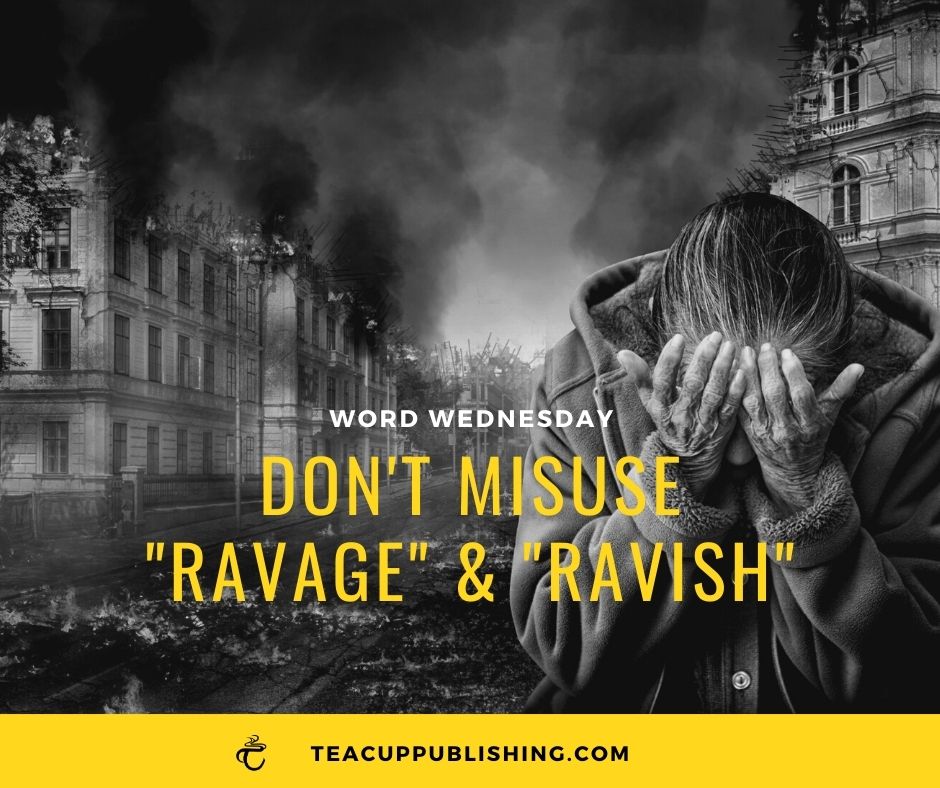Maybe I read too many romance novels, but I weary of writers who misuse “ravage” and “ravish.” I can’t count the number of times I see these two words mixed up. They do sound similar, but their meanings are quite different.
Now, neither of these words are particularly nice words, but then I guess neither is 2020.
Ravage
Ravage means
- To wreak havoc
- To act destructively
Ravish
Ravish can mean a couple of contradictory things:
- To seize by violence OR to rape
- To overcome with positive emotion
- To plunder or rob
Uses
My examples are going to focus on traditionally published romance novels, where the heroine’s viewpoint forms 60% of the story. I will do my best to keep the discussion PG.
If the hero is “ravaging” the heroine, he is harming her. While this may or may not be a consensual act, it’s almost certainly not what the author meant.
However, if he is “ravishing” her, the author typically uses the word romantically. So she’s feeling joy or delight, which should be clear from the context within the scene. It is still possible that the ravishment is a negative act, using the other definitions of the word.
Of course, you can “ravage” by “ravishing,” but readers do complain about that kind of word play. While my kid is now learning about alliteration in school, I’ve had too many betas protest that my use of alliteration is cutesy.
Please don’t misuse ravage and ravish. You certainly don’t want to ravage your audience’s goodwill and comprehension of your message.
Learning new words and being able to find the word that means exactly what the story needs can mean the difference between a mediocre story and a brilliant one.
For Word Wednesdays, we will identify an unusual word, provide its definition, and discuss its application or its impact.

